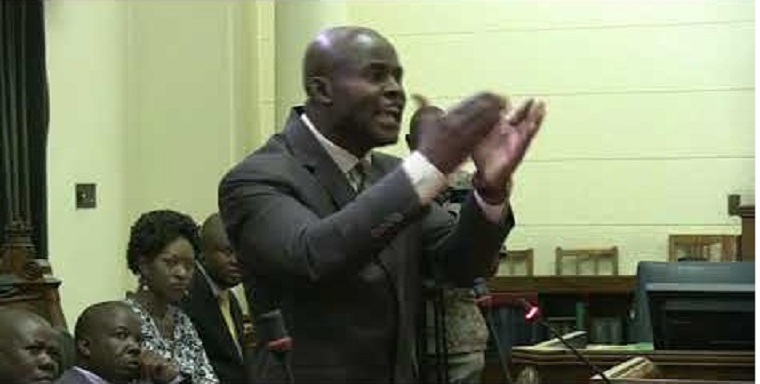Mr. President, I go to the issues of priority from a constitutional point of view where money should go. If we had 3.6 billion would you put it to the compensation of the farmers or we put it into the productive sector, produce money, be able to raise money and ultimately compensate the farmers. I am not against compensating farmers but was this the time to do it yet we have got so much that is waiting on us to be able solved. We have a lot of issues which are before us which I believe are more important to address. I think it is equally important for a priority list to be put together.
The SONA was very clear in terms of agriculture where we are going and I think production is what we need at the end of the day. We have got the Pfumvudza which is the much talked about programme. Let me be very blunt about the Pfumvunza, being a farmer. We have got Command Agriculture, I am glad Command Agriculture has been reduced to a situation where it is not politicized. Unfortunately, Pfumvudza is politicised. In being politicised, Agritex must be involved in making sure that whichever farmer is given inputs, they can see where they are farming. It is only now where you see a lot of fertilizer shops coming up. Hon. Nduna will agree that in Chegutu and Norton there are more fertilizer shops now, where is this fertilizer coming from? It is coming from people, they are selling it. May I also say it is a case before the courts which Hon. Nduna knows of. There is a Councilor in Chegutu and other people who are before the courts on allegation of misappropriating and mismanaging inputs.
So, when you look at Pfumvudza, we are excited Hon. Speaker when we say 1.8 million people are benefiting. I want to look at the cost and the economists are here that 1.8 million worth of inputs, you are giving them inputs where there is uncertainty in terms of the weather pattern. So if there is a drought, 1.8 million worth of inputs is gone. What I would do, I will take that money, take it to farms, rehabilitate the irrigation infrastructure and mechanisation. From a food security point of view, we must be able to have farms which we are guaranteed will give us food security because there is irrigation. From an economic point of view 1.8 million worth of inputs targeting each province 20 farms, where you do this and those 20 farms meeting the target and surpassing the target of that province in terms of the food security, be it wheat, soya beans and maize and we are done. Why can that money not find itself there because we are not guaranteed of a bumper harvest with $1.8 million worth of inputs that have gone to Pfumvudza. Like I said politically it makes sense but economically, it does not make sense though we are excited about the number growing. Next year it will be 2.2 million but in assessing that of the 1.8 million who have been given those inputs, what was the yield? There is no report of the yield but once again, we say it is a good programme. In agriculture, we have to talk about figures and in talking about figures, we need to understand. There is Tokwe-Murkosi – put those inputs into that place where you can put irrigation because water is there and you are guaranteed a bumper harvest. Why are we not putting our resources into water bodies which we know will be able to sustain the food security and the agriculture sector that we need in this country.
Continued next page
(344 VIEWS)


